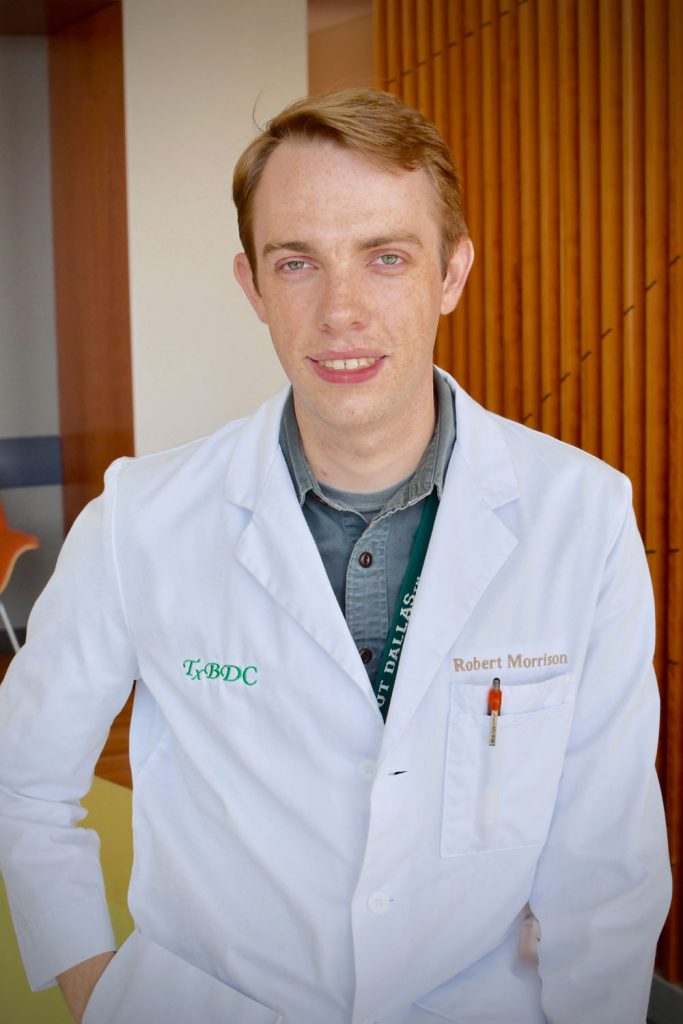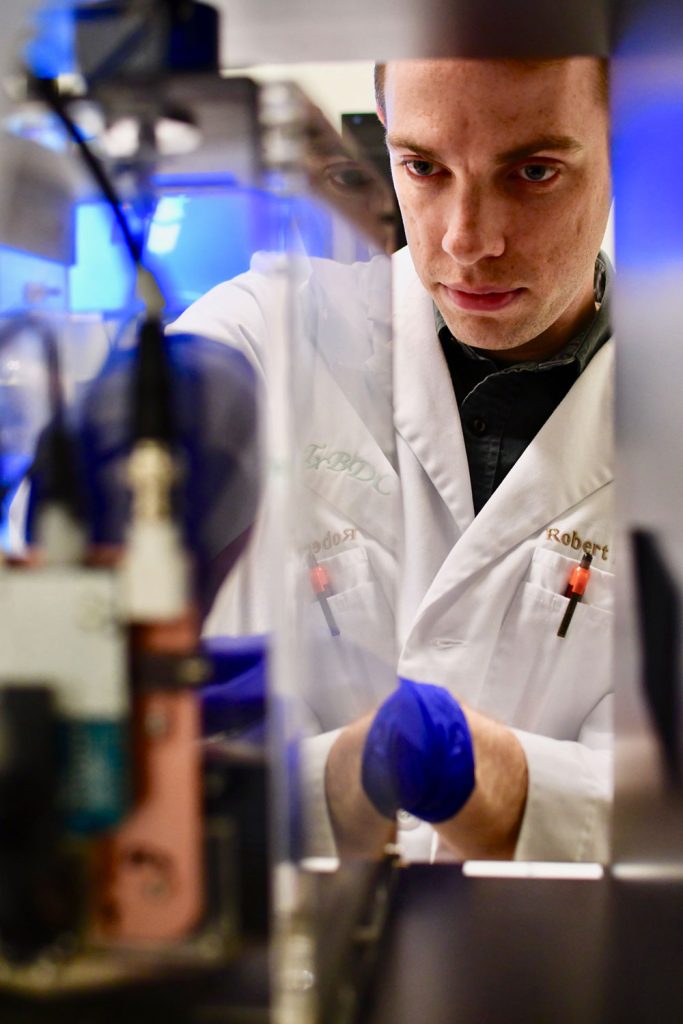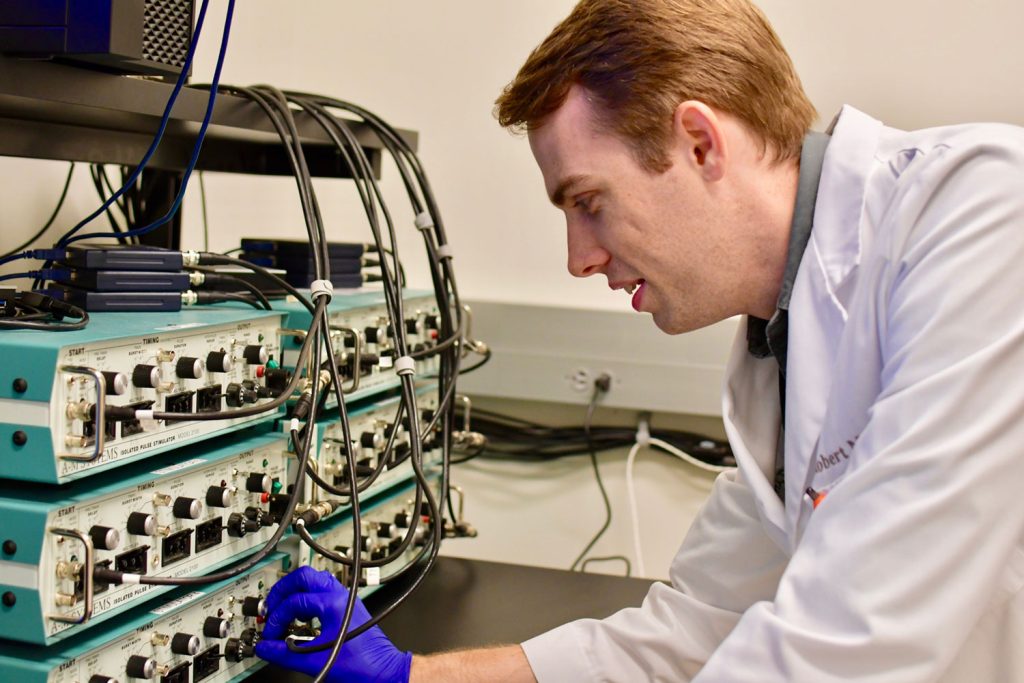TxBDC Graduate Student Awarded Matthew S. Perry Fellowship
August 8, 2019
Graduate student Robert Morrison was recently awarded the Matthew S. Perry Fellowship in Cognition and Neuroscience which supports graduate students pursuing degrees in Neuroscience and Cognition in the School of Behavioral and Brain Sciences. Robert’s research focuses on optimizing Targeted Plasticity Therapy, which enhances recovery after a neurological injury or disease.
Here is what Robert had to say:
What got you interested in neuroscience?
I originally became interested in neuroscience by chance. In high school I was very into the fine arts. I was regularly in school plays and musicals at the community theatre, and my senior year I was busy applying to music and theatre programs across Texas. Then I came across a popular science book about decision-making and cognition, “How We Decide,” by Jonah Lehrer. After reading it, I became obsessed with the brain and how it works. I immediately made a U-turn with what I wanted to do with my life, enrolled in my local community college, doubled down on biology classes, and transferred into the neuroscience program at UT Dallas the following year. Since then I’ve continued to love the field, and I’m so glad I read that book all those years ago.


What research are you pursuing for your dissertation?
My dissertation research focuses on optimizing Targeted Plasticity Therapy (TPT) to make it even better at enhancing recovery after common neurological injuries like stroke or traumatic brain injury. In particular, I’m trying to figure out what electrical parameters are most effective in our therapy at increasing neural plasticity – the brain’s ability to “rewire” itself. Increasing neural plasticity by tweaking our treatment parameters may result in a faster or more complete recovery for patients, and I’m really excited about that prospect.
What have you learned about teamwork while working at UTD?
I’ve learned that emphasizing teamwork and collaboration is the right way to do science. Take the Texas Biomedical Device Center for example; we’re a collaboration of different labs with different focuses working on the same problem from many different angles, and I think this allows us to cover a lot of ground in short amounts of time.
What does this fellowship mean to you?
It’s an honor to receive the Matthew S. Perry Fellowship, and I think it’s doubly special because Matthew Perry was previously in the lab I’m currently a member of. It feels good to think that I can continue the research he was working toward and that I’m contributing pieces to the same puzzle.
What makes you most excited about the future?
I’m extremely happy about where our research is heading and I’m so excited to see where it will go in the future. Our therapy is getting better every day and we’re learning more and more about the neural mechanisms behind TPT, but what will our research look like ten years from now, or even fifty?
Right now we’re working to treat a diverse variety of neurological injuries ranging from stroke, traumatic brain injury, and spinal cord injury all the way to PTSD and tinnitus. How big can we make that list? Are the benefits of TPT limited to those with injuries, or can healthy people utilize targeted-neuroplasticity as well? There are already studies looking into applications for TPT to accelerate learning and enhance memory. Today these ideas might seem like they border on science fiction, but I believe that there’s a huge potential for our work to help make things like that commonplace one day. I’m really eager to see where the field heads from here and how our research will have contributed.
Visit the Texas Biomedical Device Center website for more information about joining us.

